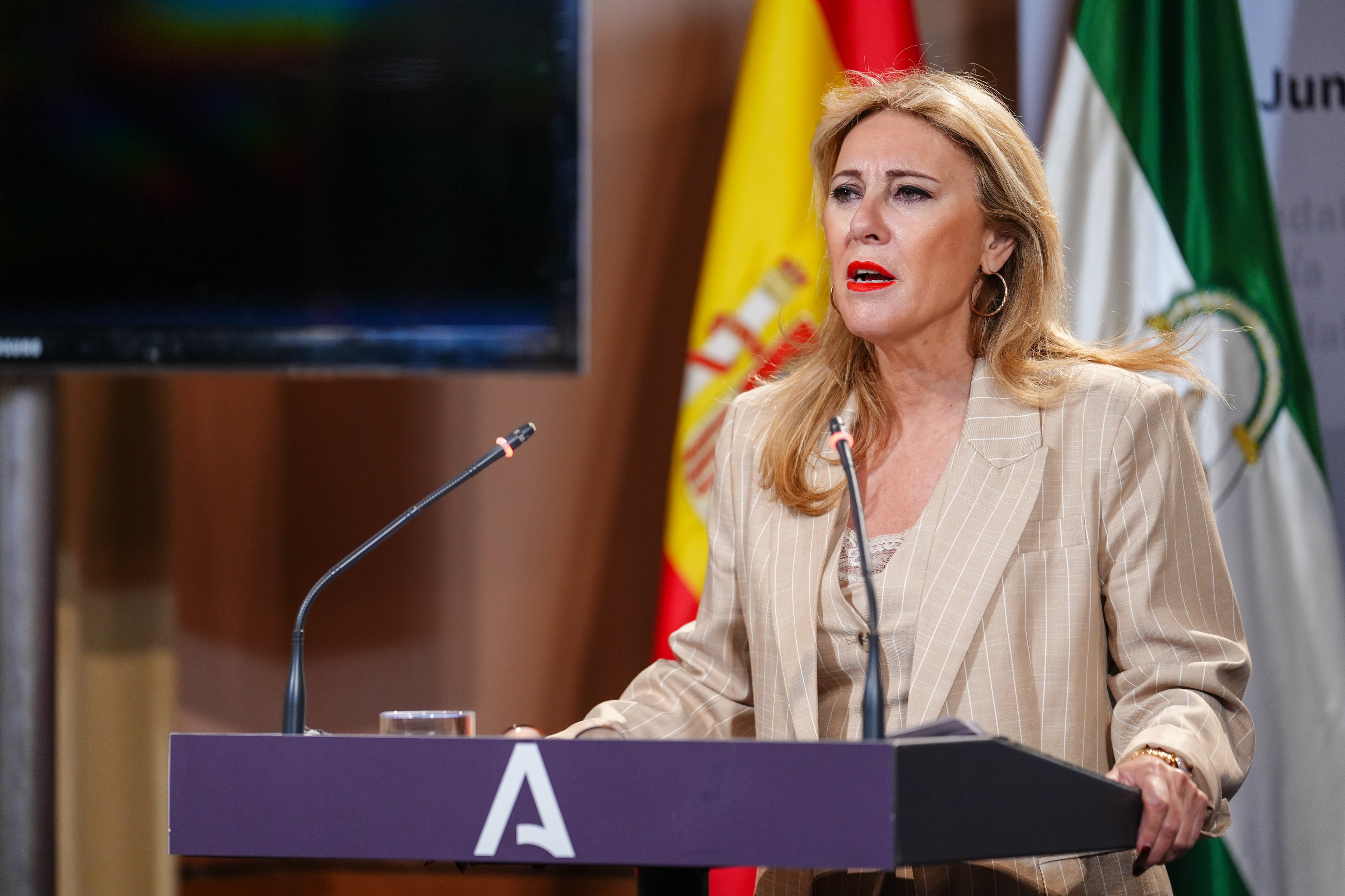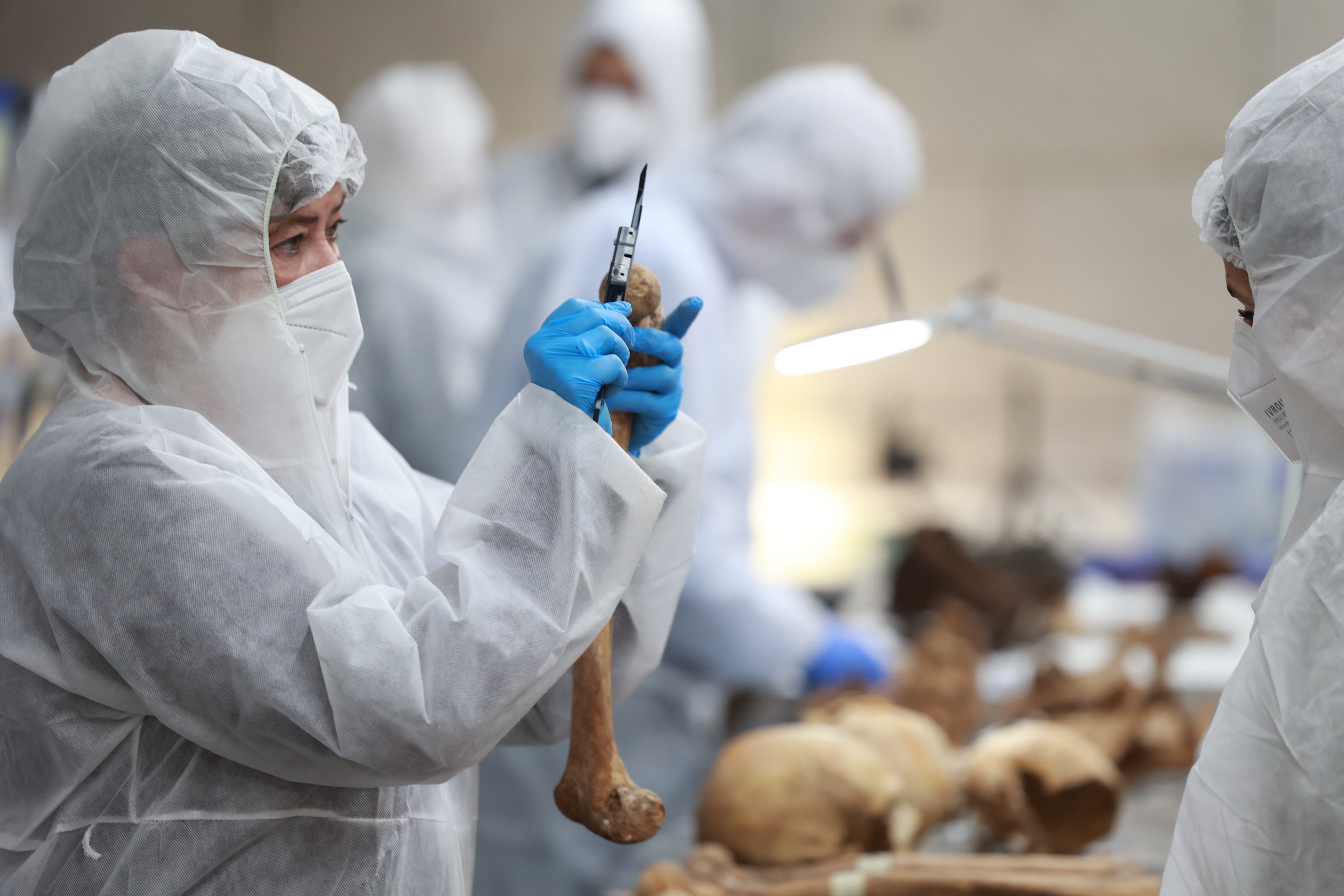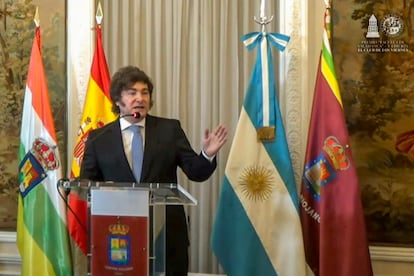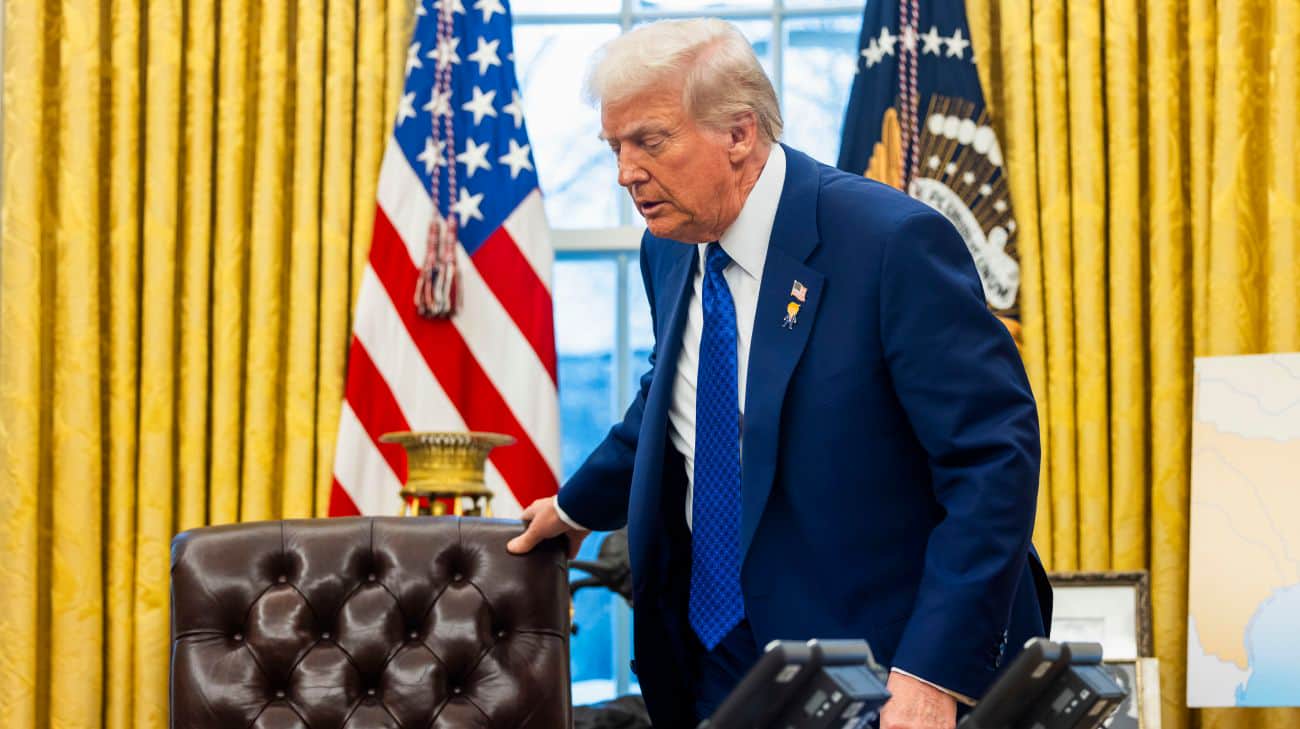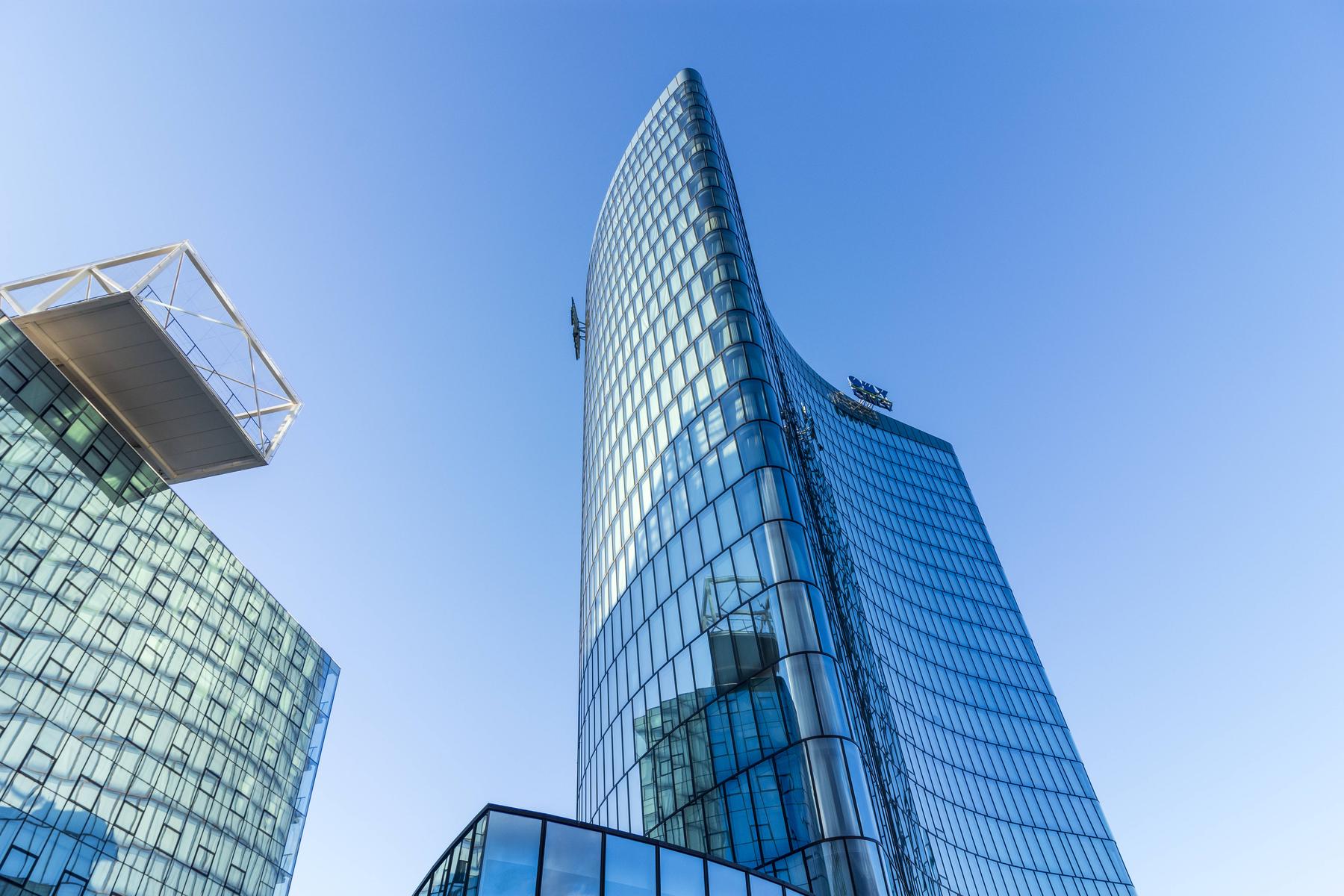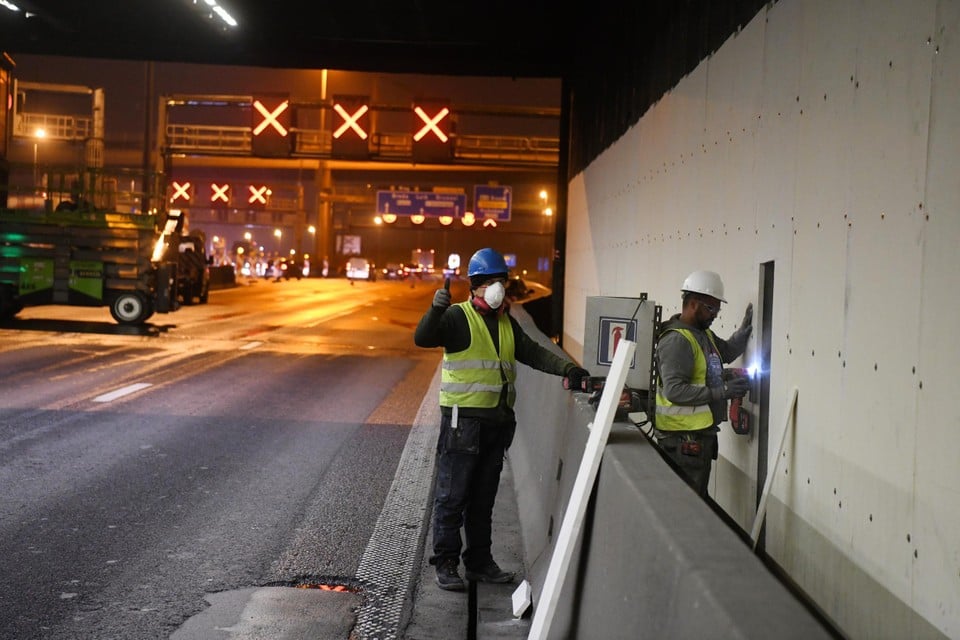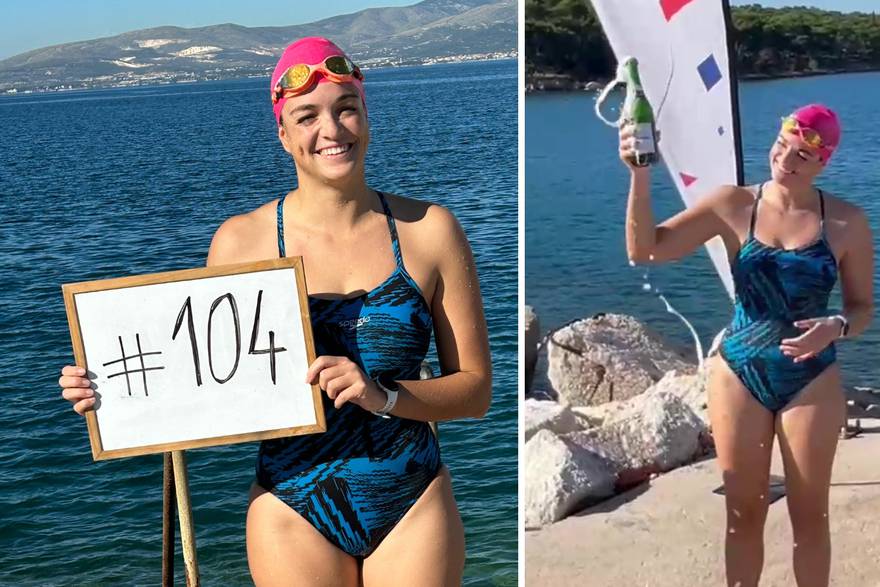Ten hours in the center of the blackout | Spain
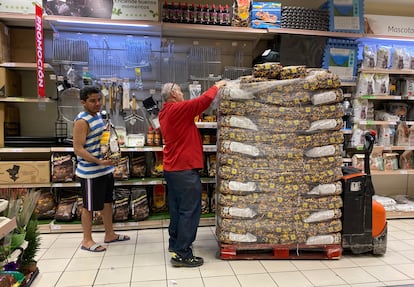
There are times that the city, in the dark, but with the sun high, says things. Madrid, with its more than three million inhabitants and more millions that could not return to their homes when everything had cast black, roaring. The sirens of firefighters, police, ambulances sounded. The cars engines sounded in First, their clauses to put order. In the absence of traffic lights, an unusual courtesy had been imposed in this capital of mother mentioned, fuss from the windows and accidents every day in the M-30 (the circuit that embraces her). The wild city said things when at 13 hours public hospitals worked without light but with the precision and calm of a neurosurgeon. And he also said other things a lot of his people, the one who lives in Madrid, but sleeps outside, the one who has no car and walked without stopping carrying computers, books, without knowing where to go. People who asked for autoestop for someone to bring them closer to their destination. Many who had not spoken with their mother for hours and others who possibly at the close of this newspaper have not managed to return home to sleep with the cut rail network.
12.40 hours, Everyone looked at the navel. He turned off and turned on the mobile. He checked the leads of his house. The landing appeared. He saw a neighbor asphyxiated the stairs because the elevator did not work. At 13 hours, the blackout in Madrid was still somewhat individual, perhaps of a building, maybe an area, a station, a neighborhood, a district. He had turned off a country and they still didn’t know.
By 14.30, departure time of many works and schools, the streets of southern Madrid, in Usera, one of the poorest areas of the capital, were a river of people. As if The wagons crowded every day by labor that pushes this city would have emptied on the sidewalks and its passengers wandered disoriented. The plane of the subway does not work on the surface and that of Google Maps had gone to better life. People tried to get to the only place they knew that some transport could come out: the Atocha station.
At 14.45, the doors of the hospital twelve of October, there was an unusual calm. It was one of the few sites in the country where there was light in the halls and the phones and computers worked. From the press office they assured that the only thing that had been interrupted was ordinary activity, the planned consultations and surgeries, but assured that the rest could work with some normality, thanks to some electric groups, enough to address any emergency and extraordinary operation. A man who accompanied his father who had been admitted for a renal problem for weeks tried to find a cafeteria to eat; Another woman called a taxi non -stop. « Chaos is out. Inside we have not even learned, » Carmen told this newspaper, who accompanied her father to look for the car to go home.
At the doors was the nursing assistant, Luz Osorio, 58, born in the Colombian coffee axis, but resident in Spain for more than 30 years. When everything went out, he counts, he was in control by putting the data of a patient. « And suddenly, pum! The screen turned black, » he recalls. This Monday he had decided not to take the car, because it is impossible to park in the area. The problem is that at the exit of its turn, at 15.00, There was no human form to get to Vallecaswhere you live. And he decided to ask the cars that passed. « Please, could I approach even a procedure? Really, what shame, but I don’t know what else to do. Have you seen if you go there? », Osorio asked a driver.
The closest bus stops had more than 50 people waiting. Many of them, hospital patients who were looking for a vehicle that went to Alcorcón, Getafe, Ciempozuelos. Some carried notebooks with the destinations written with a marker; Others simply touched the windows of the cars. Many managed to get on the vehicles: « Yes, yes, even if you can bring me a little. I look for my life, » a woman thanked a driver while she rode. The city said many more things than its leaders four hours after the blackout.
The main exit routes of the city were stuck, the M-30 or the M-40 had delays of more than two hours, for no more than 30 minutes. And from the hospital twelve of October to Avenida de la Albufera in Vallecas, at 5:00 p.m. on Monday, one could be done more than an hour and a half on a journey of just over seven kilometers.
At the doors of the Alcampo on Calle de Monleón in the heart of Vallecas, the apocalypse. This was assured by José, who replied as the reserves of a product that neither in his worst nightmares would have imagined. Coal. The coal was running out. Families with cars full of coal, water and bread filled the tails of this supermarket without one explain well why this new crisis this product It had become the new toilet paper. It was explained by Luisa and Petra: « We have not thought about it. We have seen that our neighbors took it and of course, it makes all the sense. We make some bonfires on the street tonight and we roast some chops. » « I really don’t understand anything. People are fatal, » José, who moved a car with dozens of sacks to replace the shelves.
At 5:30 p.m. the bread was over in the supermarket. Or that seemed. Although Maria took some bars under request. A rationing mechanism that consisted of common sense. Well, I had seen people take more than 10 bars that afternoon. So imposed a maximum of two per person. And point.
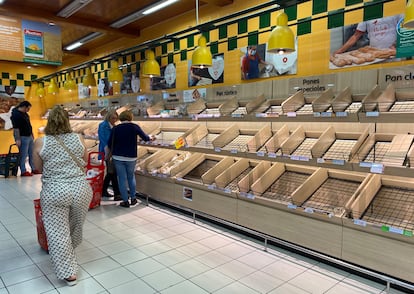
At 6.30 pm, Avenida de la Albufera at the height of the Vallecas bridge was the closest thing to a boardwalk, although without sea and with a view to the horrific gray artifact than the neighborhood activists nicknamed the Scalextric. In this street, which in the middle of the afternoon, no business was left. The neighbors had populated the banks, the sidewalks, relied on the portals. They carried beers in their hand, some radios, others had decided to exhaust how little they had battery to liven up the afternoon to the rhythm of Canelita and Bad Bunny.
The city said many things at that time, when the president of the Government had already intervened, Pedro Sánchez, to say that nothing was known about the cause of the blackout. Well, in these points of Madrid and poor Madrid, the businesses had closed « as a precaution, » said a neighbor. Here neither the VIPS, nor the primate nor a KFC had the rise blinds (not in other more accommodated areas). The street kept smelling of rotten garbage, of the strike that had just been disturbedbut the trucks had not yet approached the neighborhood. And its inhabitants, oblivious to the trajín of some bars and businesses with electronic payment and wifi of the center, did what they know how to do: survive on the other side.

